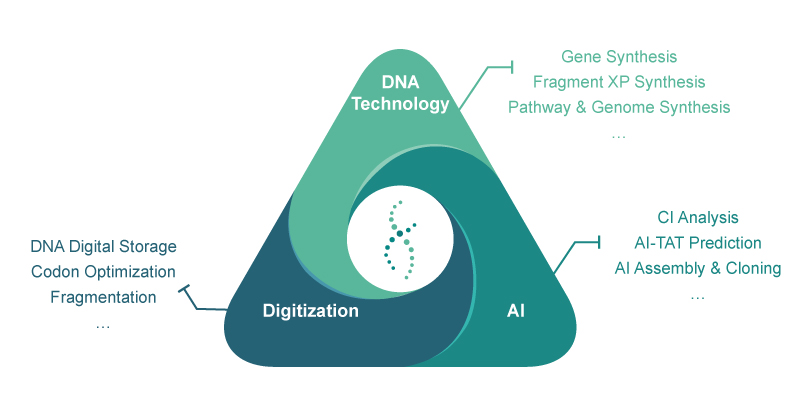As a researcher in the field of molecular biology, I have witnessed firsthand how dna synthesis services can revolutionize scientific inquiry. One notable case involved a biotech startup that required custom-designed genes for their innovative therapeutic solutions. By utilizing advanced dna synthesis services, they were able to expedite their research and development processes significantly, leading to breakthroughs that would not have been possible otherwise.
The Comprehensive Nature of DNA Synthesis Services
DNA synthesis services encompass a range of offerings designed to meet the diverse needs of researchers and companies alike. These services provide high-quality synthetic DNA sequences tailored to specific requirements, ensuring accuracy and reliability in experimental applications. A key attribute is their scalability; whether it’s small-scale projects or large genomic constructs, these services adapt seamlessly. Importantly, many providers are increasingly focusing on Environmental Sustainability by employing eco-friendly practices throughout the synthesis process—minimizing waste and energy consumption while maximizing efficiency.
Diving Deeper into Subcloning Service and Environmental Sustainability

The subcloning service plays an integral role within the broader context of genetic engineering by allowing scientists to transfer specific gene segments into plasmids or other vectors efficiently. This process has significant implications for Environmental Sustainability as well; modern subcloning techniques often utilize less hazardous reagents and streamlined protocols that reduce environmental impact. Furthermore, advancements in this area promote more efficient use of biological materials, thereby decreasing overall resource consumption during experiments.
Understanding Synbio’s Role in Environmental Sustainability
Synthetic biology (Synbio) represents a cutting-edge frontier with profound implications for sustainability efforts across various sectors. By designing organisms with enhanced capabilities—such as biofuel production or bioremediation—Synbio holds promise for addressing pressing environmental challenges. The integration of sustainable practices within Synbio initiatives ensures that we harness nature’s potential without compromising ecological integrity; thus paving the way toward greener technologies that align with global sustainability goals.
Conclusion: The Sustainable Future of DNA Synthesis Services
In conclusion, DNA synthesis services stand at the intersection of innovation and responsibility when it comes to Environmental Sustainability. Their ability to deliver precise genetic constructs while minimizing ecological footprints highlights an essential evolution in biotechnology practices. As we continue exploring these avenues, it becomes clear that embracing sustainable methodologies will be crucial for advancing both science and our commitment to protecting our planet.
